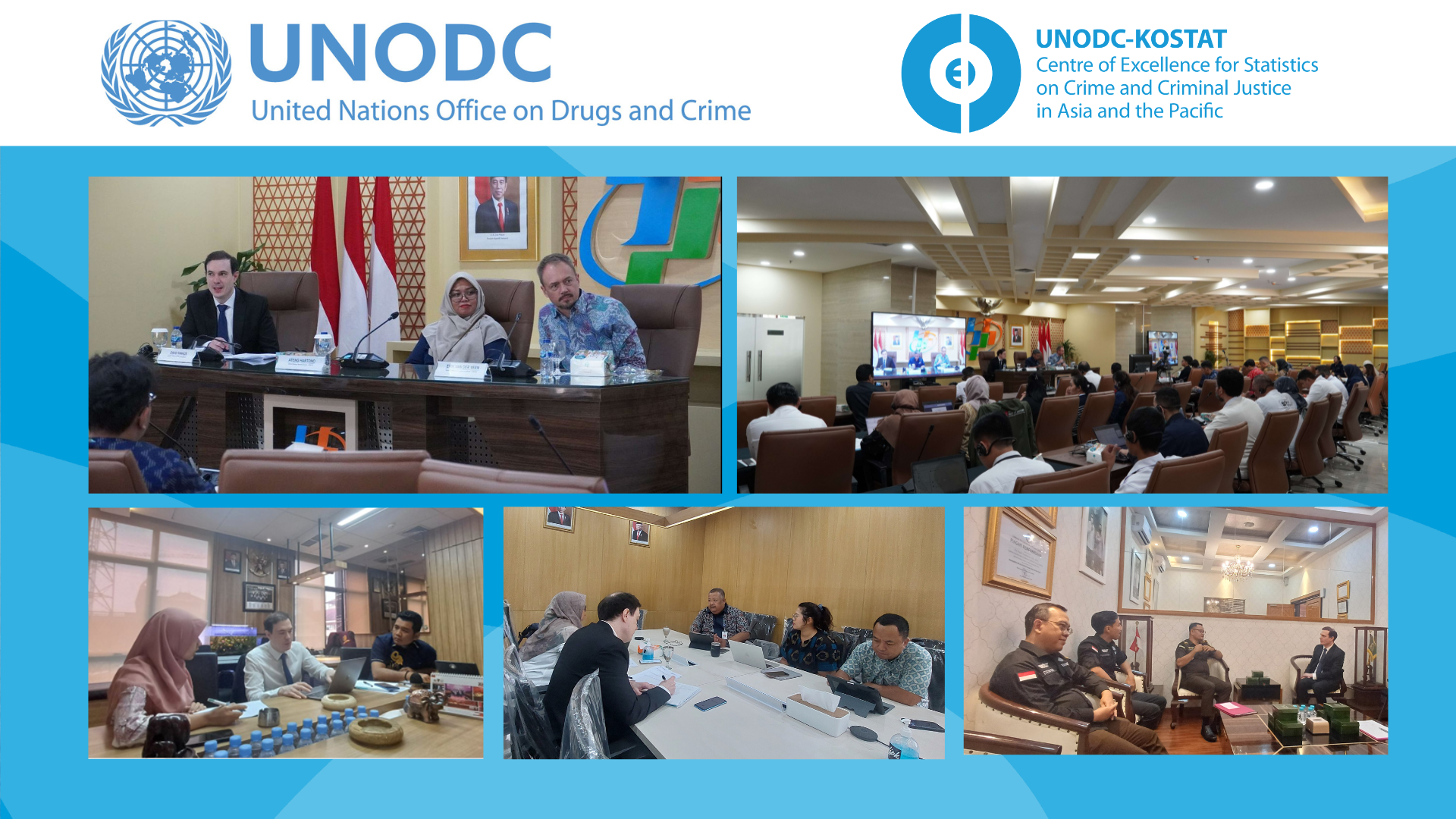
Jakarta (Indonesia), 27-31 May 2024- The harmonized collection and analysis of data on trafficking in persons is an essential step to establish a baseline to develop evidence-based national policies and responses to this crime. Therefore, it is imperative for Member States to implement a national data management system that allows an analysis of trafficking in persons based on a broad range of sources. The adoption of a common international classification standard called the International Classification Standard for Administrative Data on Trafficking in Persons (ICS-TIP) is a first step towards solving problems of data comparability and producing more reliable statistics on this crime.
The CoE kicked off a series of activities aimed at strengthening the capacities of Indonesian institutions to produce high-quality data on trafficking in persons. In coordination with Badan Pusat Statistik (BPS-Statistics Indonesia), these activities are to improve the institutions’ administrative data through data collection, data analysis, data protection and national reporting, as well as to strengthen their statistical capacities to measure the prevalence rate of trafficking in persons.
Thirty-six representatives from law enforcement agencies, the Ministry of Foreign Affairs, the Indonesian Financial Transaction Reports and Analysis Center, the National Statistical Office, the International Organization for Migration, and the University of Indonesia participated in the kick-off meeting held on Monday, 27 May, at BPS. In the meeting, the CoE highlighted the importance of data collection on trafficking in persons and its utilization to prevent this crime, plan and budget for a state response and ensure adequate law enforcement to identify trafficking in persons cases.
The participants welcomed the initiative and highlighted the need for the data producers to collect Trafficking in Persons indicators based on standardized definitions. Due to the decentralization of the data collection across institutions, it was recommended to foster coordination among the national data producers in order to develop data quality in accordance with the ICS-TIP framework.
Following the kick-off meeting, the CoE visited relevant national institutions to conduct a data availability assessment on trafficking in persons, i.e., to identify the data produced, as well as the challenges and needs of the institutions to improve the collection, analysis and reporting of data on trafficking in persons. These meetings will significantly contribute to prepare a national workshop aimed at enhancing administrative capacity for the production of data on trafficking in persons in Indonesia.
Further information on the CoE can be found here, X @CoE_UNODC and Facebook @UNODC.KOSTAT.CoE.